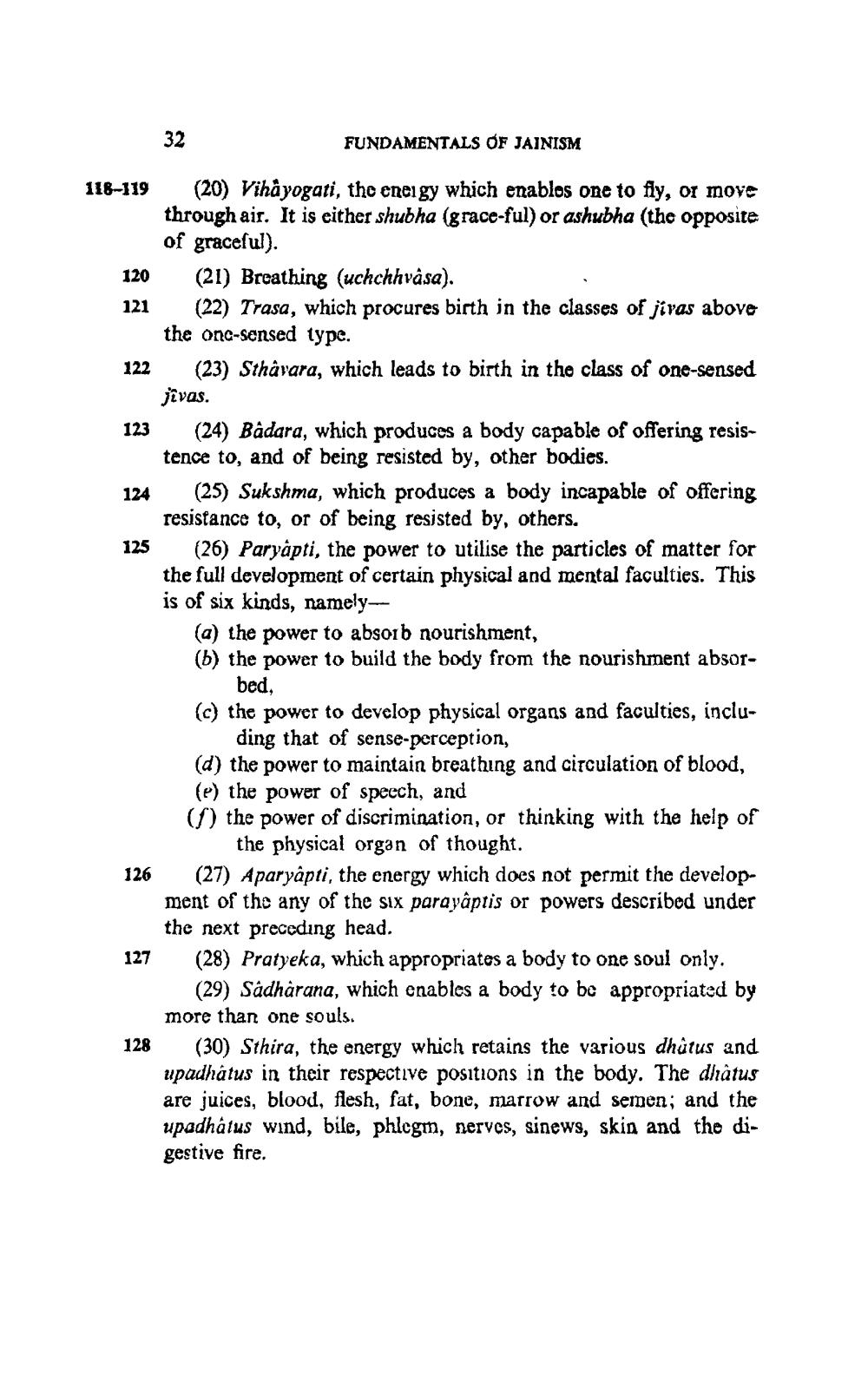________________
118-119
120
121
122
123
124
125
126
127
128
32
FUNDAMENTALS OF JAINISM
(20) Vihayogati, the energy which enables one to fly, or move through air. It is either shubha (grace-ful) or ashubha (the opposite of graceful).
(21) Breathing (uchchhvâsa).
(22) Trasa, which procures birth in the classes of jivas above the one-sensed type.
(23) Sthâvara, which leads to birth in the class of one-sensed jivas.
(24) Bâdara, which produces a body capable of offering resistence to, and of being resisted by, other bodies.
(25) Sukshma, which produces a body incapable of offering resistance to, or of being resisted by, others.
(26) Paryapti, the power to utilise the particles of matter for the full development of certain physical and mental faculties. This is of six kinds, namely
(a) the power to absorb nourishment,
(b) the power to build the body from the nourishment absorbed,
(c) the power to develop physical organs and faculties, including that of sense-perception,
(d) the power to maintain breathing and circulation of blood, (e) the power of speech, and
(f) the power of discrimination, or thinking with the help of the physical organ of thought.
(27) Aparyapti, the energy which does not permit the development of the any of the six parayâptis or powers described under the next preceding head.
(28) Pratyeka, which appropriates a body to one soul only. (29) Sadharana, which enables a body to be appropriated by more than one souls.
(30) Sthira, the energy which retains the various dhûtus and upadhatus in their respective positions in the body. The dhatus are juices, blood, flesh, fat, bone, marrow and semen; and the upadhâtus wind, bile, phlegm, nerves, sinews, skin and the digestive fire.




